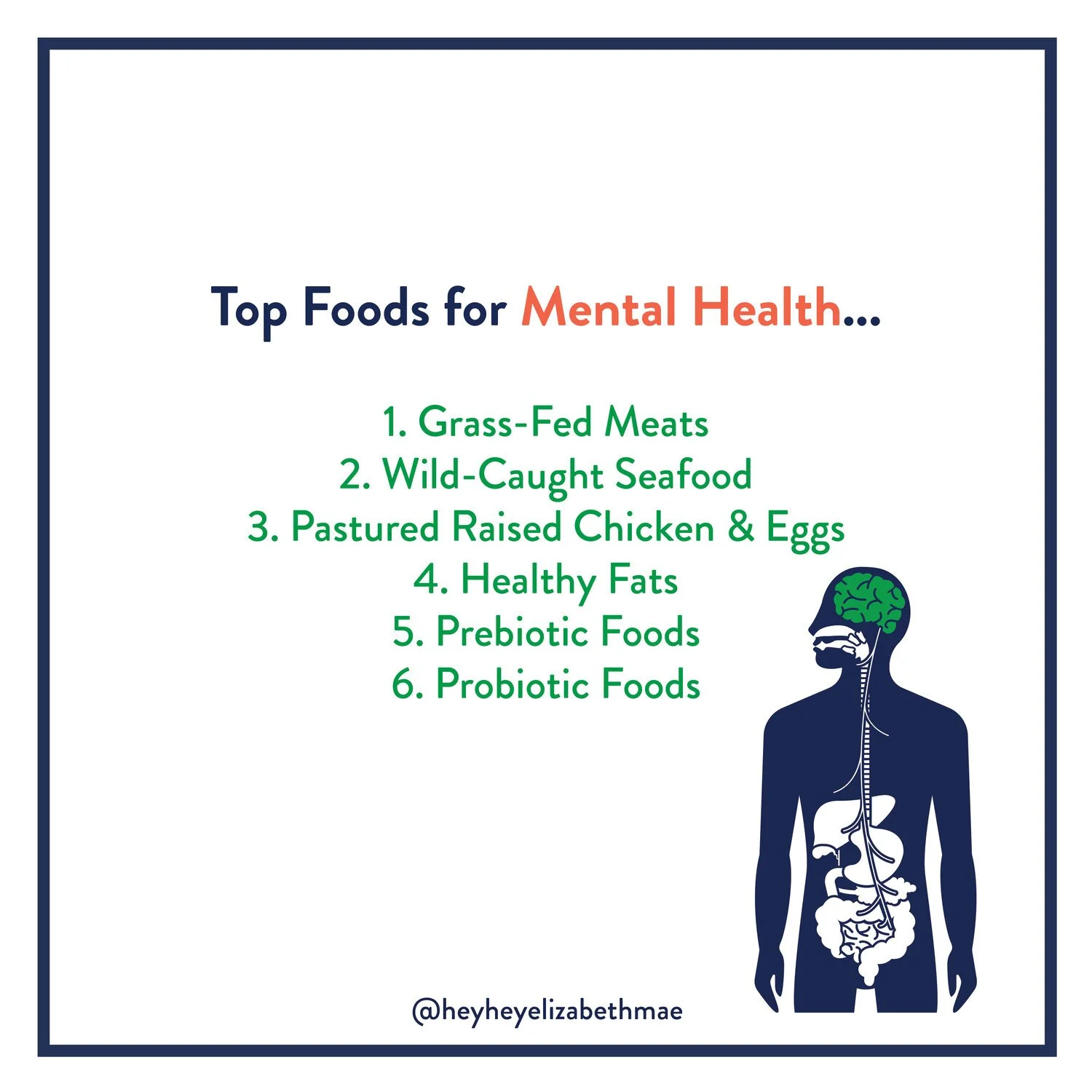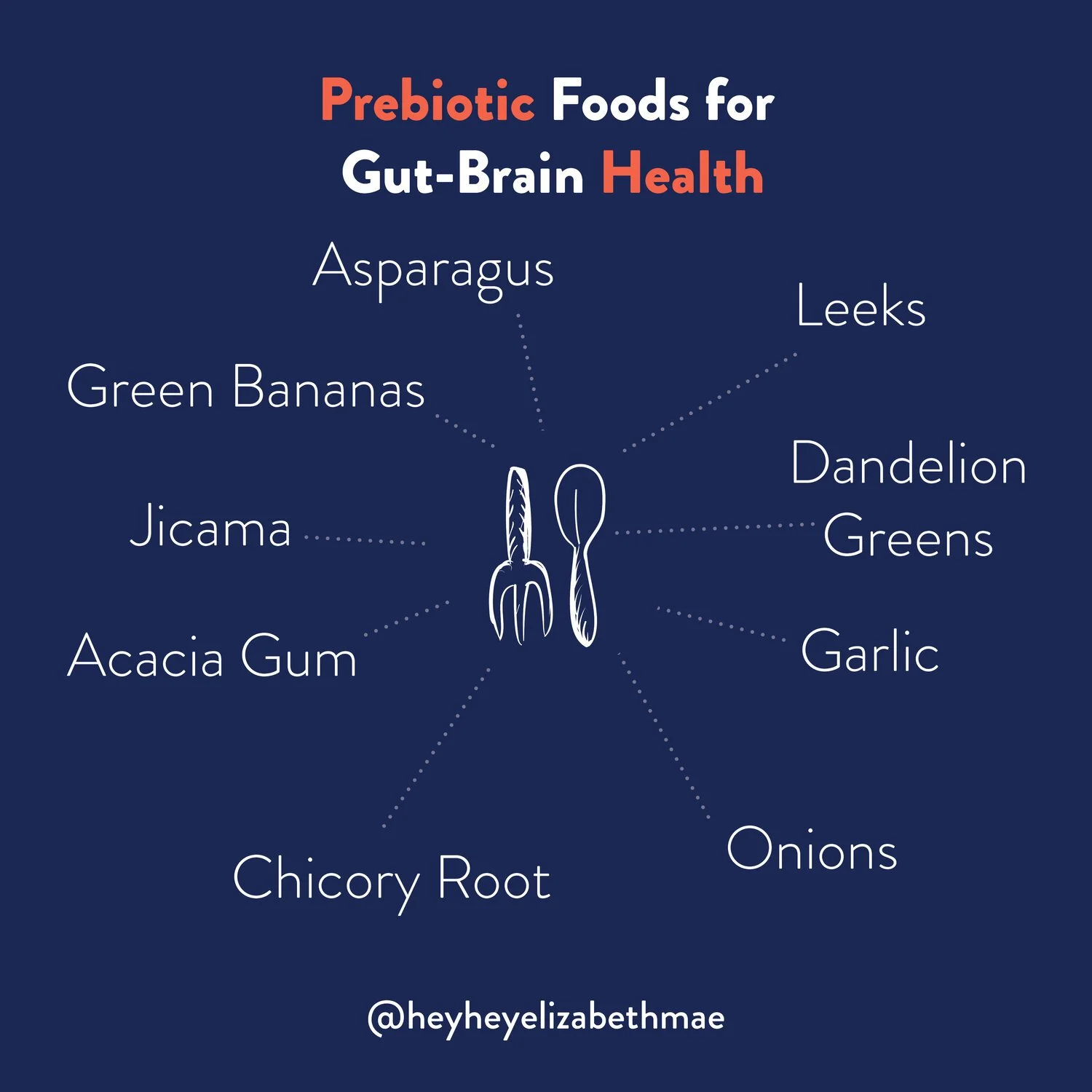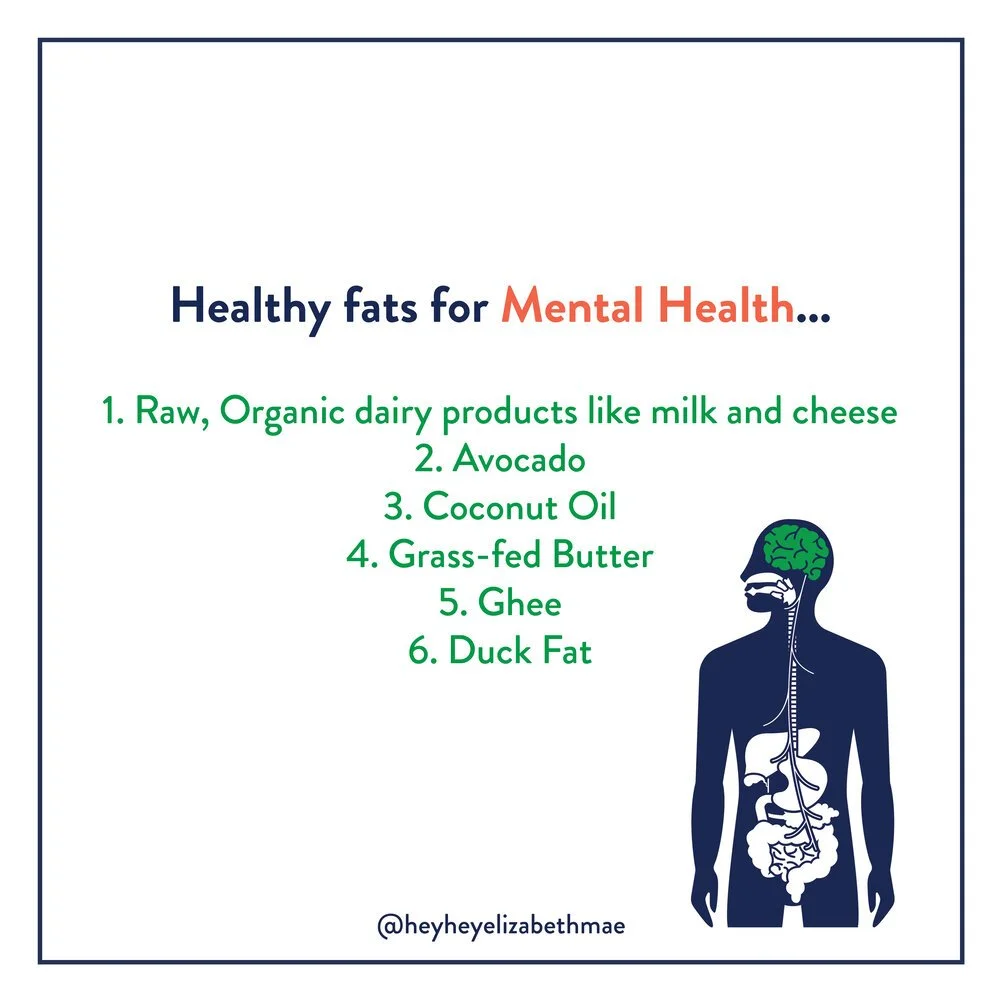The Food & Mood Connection
Fun fact: there are around 100 million neurotransmitters that are located in your gut!
These neurotransmitters make up the Enteric Nervous System (ENS), which is located in the gut. The ENS is referred to as the body’s “second brain” or the “brain in the gut” because it can function independently from the brain and spinal cord (Central Nervous System). Even though it can function independently, the brain and the gut communicate through the vagus nerve. The vagus nerve is the longest and one of the most important nerves in the body. Coined the “wandering nerve” because of its wandering nature in the body. It runs from the brain to the abdomen and helps to regulate many functions such as heart rate, blood pressure, digestion, and even speaking.
Recent research suggests that the gut-brain connection is a two-way communication street.
Think of it this way:
Have you ever been nervous and couldn’t stop running to the bathroom?
Have you felt “butterflies” in your stomach?
Have you described a moment or event as “gut-wrenching”?
Have you ever “followed your gut” or made a decision based on a feeling in your gut?
Those are all examples of the connection between the brain and the gut.
So you can bet that the food you eat and the health of your gut affects your mood!
A happy gut is fed lots of pre and probiotic-rich foods, minimal processed foods and sugar, quality fats, and sustainably-raised protein. A sad gut is created from an overconsumption of processed foods, artificial sugars, conventional meats containing antibiotics and hormones, colonization of opportunistic “bad” bacteria and/or parasites, and stress.
Don’t forget that stress can come in many different forms but is interpreted all the same by the body. During experiences with stress, your body kicks into its sympathetic state and your body pumps out cortisol to protect you and help you survive. Your body is going to respond to stress not just hormonally, but also immunologically. Essentially the body will react to stress as if it were an infection by increasing inflammation and releasing chemical messengers that put the immune system on high alert.
If your body does not tolerate the food you are eating, then this is the effect it has on your body!
The food you eat can either help or hinder the microbiota (bacteria) in your gut and there are specific neurotransmitters located in the gut that can contribute to depression, anxiety, and other mood disorders.
Here are top foods to consume to promote mental health:
Grass-fed meats (beef, bison)
Wild-caught seafood (salmon, cod, halibut)
Pasture-raiseded chicken/eggs
Healthy fats (at least 30% of the diet)
Raw, organic dairy products like milk and cheese
Avocado
Coconut oil
Grass-fed butter
Ghee
Duck fat
Prebiotic foods: leeks, jicama, chicory root, garlic, onions, asparagus
Probiotic foods: sauerkraut, kimchi, kefir, yogurt, miso
I also love this spore-based probiotic that feeds the beneficial “good” bacteria in the gut.
Eat well, and be well!
Resources
https://www.sciencedaily.com/releases/2018/05/180529132122.htm
https://www.nccih.nih.gov/news/events/4-fast-facts-about-the-gutbrain-connection



